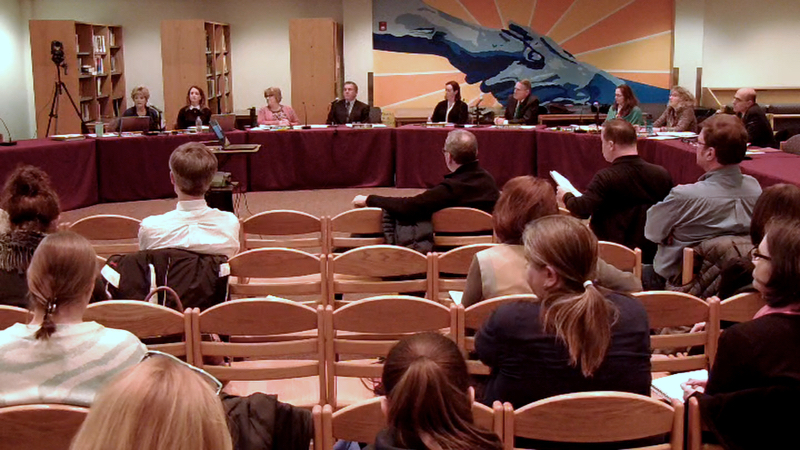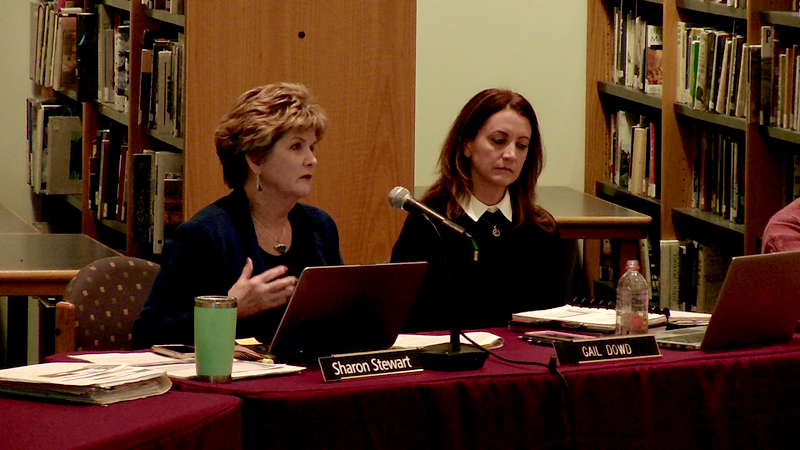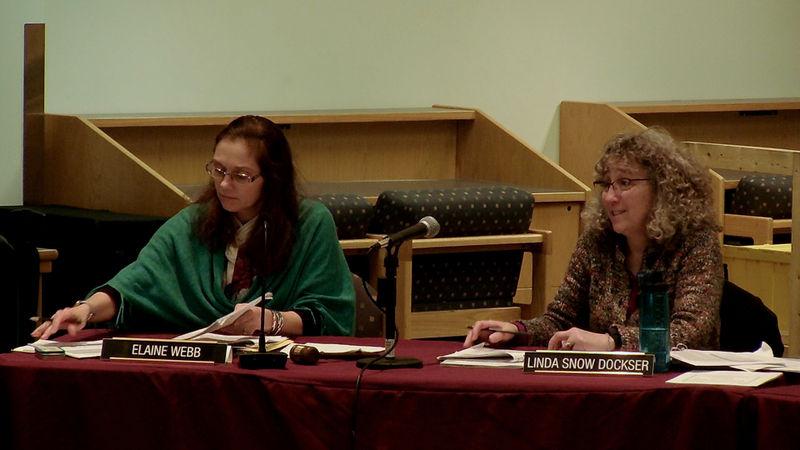 The School Committee focused on the Fiscal Year 2020 budget during its January 17 meeting. The two largest cost center budgets, Regular Day and Special Education, were both presented to the committee. Regular Day accounts for 58.1% of the total School Department budget for a total of $27,015,632. This is an increase of $367,918 or 1.4% over the FY2019 budget. Included in FY2020 are 342.1 full-time equivalents (FTE) positions, an increase of 1.2 FTE for Kindergarten and grade one teachers. Without the FTE increase, class sizes in first grade at several schools could be as high as 27 or 28 per class according to Superintendent of Schools John Doherty, which is significantly higher than the School Committee guidance of no greater than 22 students in younger grade classes.
The School Committee focused on the Fiscal Year 2020 budget during its January 17 meeting. The two largest cost center budgets, Regular Day and Special Education, were both presented to the committee. Regular Day accounts for 58.1% of the total School Department budget for a total of $27,015,632. This is an increase of $367,918 or 1.4% over the FY2019 budget. Included in FY2020 are 342.1 full-time equivalents (FTE) positions, an increase of 1.2 FTE for Kindergarten and grade one teachers. Without the FTE increase, class sizes in first grade at several schools could be as high as 27 or 28 per class according to Superintendent of Schools John Doherty, which is significantly higher than the School Committee guidance of no greater than 22 students in younger grade classes.
The rest of the increase is explained through a negotiated cost of living increase for teachers and for market adjustments for non-represented staff. There are planned updates to the middle school social studies curriculum which will align with new state standards. There are also increased local transportation costs. Ninety percent of new kindergarten students will be in the full-day program, increasing the needed offset to $151,000. There are decreases in district-wide technology and professional development to help balance the budget. Assistant Superintendent Christine Kelley mentioned that the new curriculum coordinators provide some in-house capacity for professional development. Committee member Nicholas Boivin questioned why there has been a significant jump in the “Other” line item of the Regular Day budget from the reported expenditures in the FY2018 budget. Director of Finance Gail Dowd explained that the FY2018 budget was not a level service budget and that the override restored the building-based budgets to those levels. The same is true for increases in the curriculum.

Director of Student Services Sharon Stewart presented the special education program and budget to the committee. She, along with two building principals, highlighted the importance of special education and the changing nature of its requirements. “That is the nature of special education. Things change,” Stewart stated. Costs are often driven by individual student needs as well as federal and state regulations. There are 756 students in the district with Individual Education Programs (IEP), which represents 17.67% of the students in the district. These IEP’s range from those who need a little extra time on assignments to the 62 who are placed out-of-district in special education schools. The special education budget is $14,927,858 which is an increase of 7.4% over FY2019. It adds 4.2 FTE to the overall staffing levels. “High growth is driven by factors we cannot control,” Boivin expressed.

The School Committee voted 5-0 to inform the Select Board of the vacancy on the committee caused by the resignation of Sherri VandenAkker. Chair Elaine Webb will attend the January 22 Select Board meeting and express the point, if asked, that a new person appointed to the committee would only be able to attend one meeting on March 21 prior to the April 2 election.
“It seems as though the person’s energy would be better focused on getting elected by the people,” Committee member Linda Snow Dockser commented.
The Reading Post reached out to Select Board Chair Andrew Friedmann who said the “Select Board expressed a willingness to appoint a replacement in concert with the School Committee. The Town Manager stated that we are waiting to see if the School Committee wants to fill the vacancy. They have 30 days to decide.”
Superintendent Doherty reported that the RISE pre-school program would have a start time of 8:00 am starting in the next school year. Full-day students in the program will be in class from 8:00am-2:00 pm. The School Committee adjourned at 10:05 pm.
